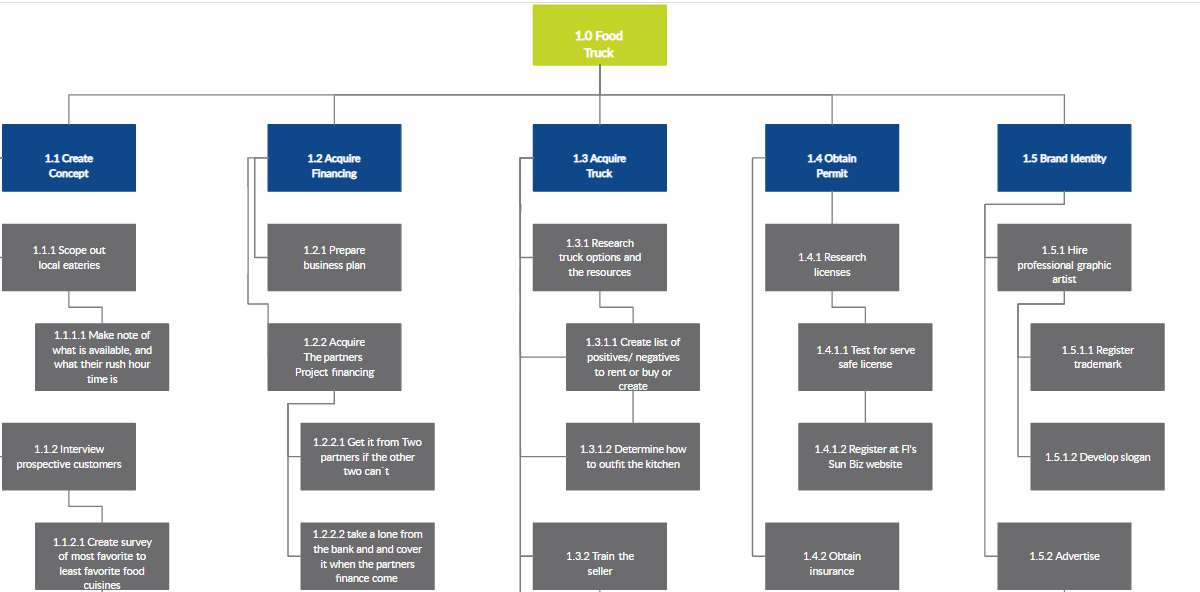Starting the food truck business will require an appealing and competitive concept, a solid marketing strategy, equipped food truck, and a viable business plan. Since food trucks are cheaper than purchasing a restaurant location, it will be a cost-effective but profitable option. The business will offer better quality, fresh and affordable meals to people at their convenient places. The cost involved will cover purchasing of the food truck, advertising and PR, a truck wrap, a point-of-sale (POS) system, website design, consulting fees, and website design. The truck will be modified to ensure that it meets local health and fire regulations (Agyeman et al., 2017). Some of the recurring costs will include card processing, equipment rental, payroll, as well as fuel. Permits and operating licenses will also be required to start running the business. The expected additional startup cost during the launching process will be as shown below.
- Initial product inventory: $1,500 to $2,500
- Insurance: $2,000 to $4,000 per year
- Payment processing: $220 to $1,200
- Permits and licenses: $110 to $550
- Commissary fees: $400 to $1,200

The food truck scene will be evaluated by considering various factors such as prices, parking location, cuisine, as well as serving hours. Visiting a local track will help offer information regarding the menu size, the number of customers, and service style (King, 2021). Capturing the attention of customers will necessitate the creation of social media accounts and enhancement of their engagement (Rivolli et al., 2018). As shown in diagram 1 above, researching truck laws and interacting and gathering information from other truck operators will require about six days to complete.
Table 1: Steps to be following to start the food truck business.
The next step would be the determination of a concept and name. Personal experiences and interests will influence the food truck concept by considering the consumer demand in a given area. Concepts will include pizza, comfort foods, fusion dishes, regional cuisine, gourmet sandwiches, health and organic foods (Spink, 2019). As illustrated in table 1 above, the truck will be given a name that aligns with the concept and becomes the logo and social media handle. The business logo will be exciting to evoke quality and freshness developed (Agyeman et al., 2017). The loge will be used for advertisement, social media, business cards, and menus. The work will take about six days to determine the concept and develop the business logo.
The next step will involve opening a bank account and registering the business. A business bank account will help separate personal finances to ensure that the business runs on its own. The work will require about six days since there might be delays in the business registration process. Raising funds to purchase the food truck business will be the next step and will also require about 6 days. It will be necessary to develop a business plan to determine the overall expected cost of running the business. The next step involves seeking insurance, permits, and licenses to cover the food service, general business, and vehicle (Shin et al., 2019). The subsequent steps would be purchasing the truck, equipment & supplies, hiring and training staff, and marketing the food truck, respectively. All these steps are important to the business will be allocated each six days. As shown in the chart below, starting the business will require about two months to meet all requirements.

References
Agyeman, J., Matthews, C., & Sobel, H. (Eds.). (2017). Food trucks, cultural identity, and social justice: From loncheras to lobsta love. MIT Press.
King, M. (2021). How to start a food truck business in 9 steps. Web.
Rivolli, A., Soares, C., & de Carvalho, A. C. (2018). Enhancing multilabel classification for food truck recommendation. Expert Systems, 35(4), e12304.
Web.Shin, Y. H., Kim, H., & Severt, K. (2019). Consumer values and service quality perceptions of food truck experiences. International Journal of Hospitality Management, 79, 11-20. Web.
Spink, J. W. (2019). The current state of food fraud prevention: Overview and requirements to address ‘How to Start?’and ‘How Much is Enough?’. Current Opinion in Food Science, 27, 130-138. Web.
